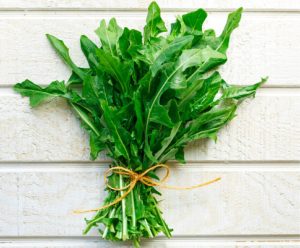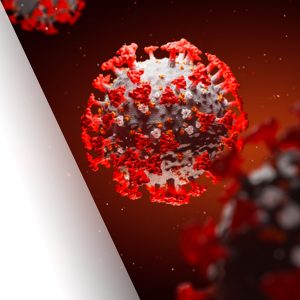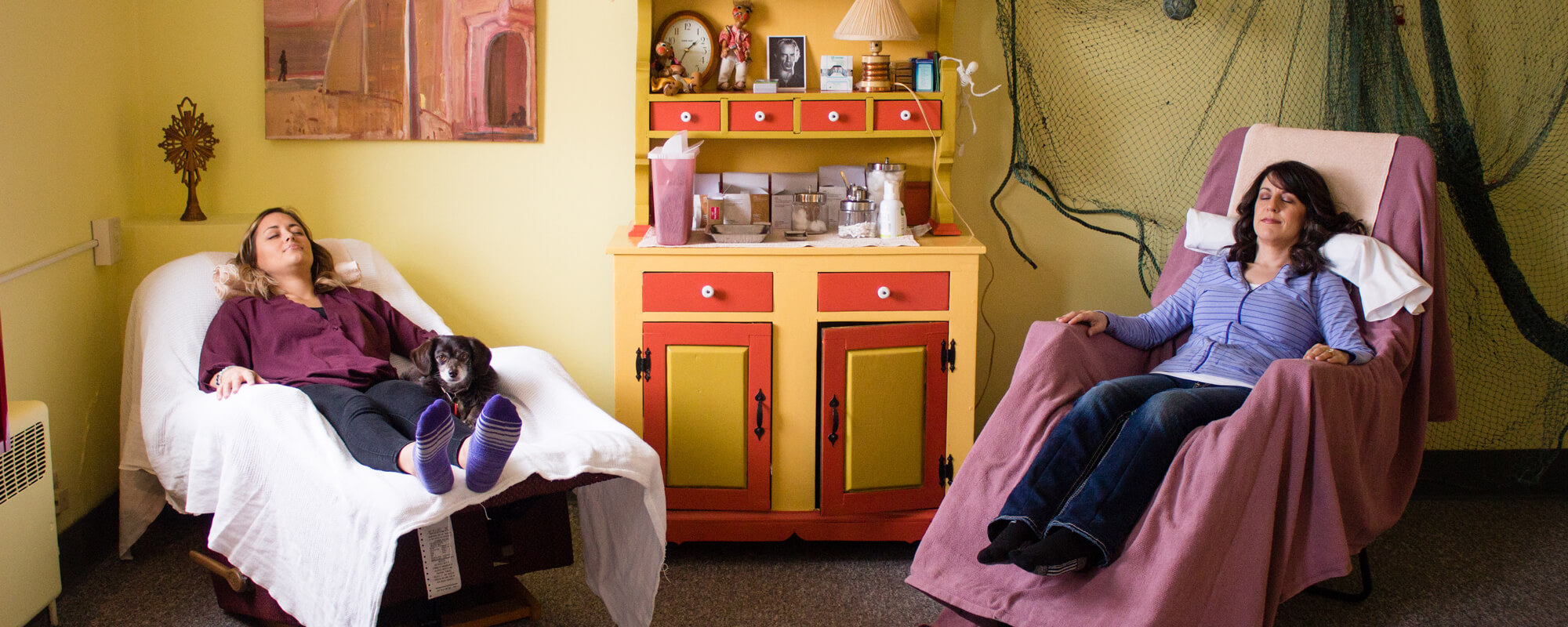- WE MOVED !!!
-
 Professional Acupuncture & Physical Therapy1118 East Superior Street
Professional Acupuncture & Physical Therapy1118 East Superior Street
Duluth, MN 55802(218) 724-3400 Clinic Hours
Mon8:00 am - 4:30 pmTue1:45 pm - 4:30 pmWed8:00 am - 4:30 pmThu8:00 am - 4:30 pmFriCLOSED

- Long Covid Booklet
Traditional Chinese Medicine
Immunity Optimizing Recipes

We’re in the cold and flu season, and this year it’s a HOT topic for many of us. But fear not, there are things that you can do, right now, from the comfort of your home. Considering a Traditional Chinese Medical perspective can help.
The following are different at-home Immune Optimizing recipes that you can make to help your body navigate this season of cold, flu, and virus.
SINUS & NASAL IRRIGATION
Ingredients: 8 oz squeeze bottle, 1 tsp sea salt, warm water
Preparation: Warm the water and salt (ensure it’s not too warm or this may cause nasal irritation)
Setting: Bend over your sink and look straight down at the sink basin while turning your head to a 45-degree angle. Tip the squeeze bottle into your nostril until the liquid runs through your sinuses and leaves the other nostril. (Search “Neti Pot” Instructions online for more detailed instructions).
CAYENNE, HONEY & LEMON TEA
Ingredients: 1 whole lemon, 1 tsp cayenne pepper, 1 tbsp honey, 3 ½ cups water
Preparation: Boil the above ingredients together for upwards of 10 minutes and strain when finished
Setting/Frequency: Drink this tea three times per day.

DANDELION SMOOTHIE
Ingredients: 1 head of cabbage, 2 cucumbers, 2 oranges, and 1 cup of dandelion greens.
Preparation: Juice the above ingredients and pour them into a glass
Setting/Frequency: Drink 3 glasses daily
ANTIOXIDANT-RICH NUT MIX
Ingredients: Pine nuts, goji Berries, blueberries (dried), and Brazil nuts
Preparation: Mix together each ingredient to taste preference
Setting/Frequency: Eat once daily as a snack, keep the recommended calorie count in mind with consumption of this mixture.
Keep in mind that there are various ways you can take care of your body in order to bolster your immune health the best chance at fighting illnesses and functioning properly. These include avoiding smoking and taking drugs (that aren’t prescribed by a doctor), which are known for depleting the body’s qi and weakening it. Additionally, keep your emotions in check, negative emotions, stress, and anxiety can suppress immune function. Do your best to remain optimistic and keep a positive attitude with everything going on in the world around us. Start with the basics – exercise, eat right, sleep and stay hydrated to maintain your body’s balance.
Give Heidi call today at (218) 724-3400 to learn more about how Traditional Chinese Medicine can help you stay healthy!
Long Haul Covid: TCM vs Western Perspectives

It’s bad enough having Covid, but dealing with lingering symptoms after fighting the infection is downright unfair. Why can’t some people (actually as many as almost half of those infected ) make a clean recovery from Covid? “Long-Haul Covid” (LHC) describes a condition of covid-related symptoms that can last for months after infection, and for some, even longer. This phenomenon is currently being studied so we can better understand the how and why.
The list of possible lingering symptoms is long and conveys the reach of this virus
and its effects on nearly every system of the body: Fatigue, fever, headaches, dizziness, cough, chest pain, heart palpitations, numbness, brain fog, changes in taste and smell, sleep problems, digestive issues, joint pain, rashes, menstrual cycle disturbances, anxiety, and depression. And the list goes on. For some it may only be one stubborn disturbance, for others, it may be a debilitating combination of symptoms.
Lingering symptoms can be from direct harm done to the body by the virus. Covid can take a toll on the body from the level of organs to organelles (microscopic cellular structures) and everything in between. Damage to the body’s organs and tissues may cause various systemic long COVID symptoms. Mitochondrial damage is another focal point of research as this organelle is responsible for energy production in the body and is a target for viral damage. This is an important area of study as ‘covid fatigue’ is one of the most common long-haul symptoms.
The immune system itself can also cause harm when unregulated. Cytokine storms are an over-aggressive immune response that can lead to persisting inflammation in the body. Many people with long-haul COVID have elevated cytokine levels, suggesting hyper-inflammation plays a role in LHC.
Another possible immune response scenario is that the stress of COVID confuses the body, triggering an autoimmune response, where the immune system mistakenly attacks its own healthy cells, tissues, and organs. There are also theories that the immune system is not actually confused, but going after viral remnants that have gone deeper into hiding and our own tissues become collateral damage in this war. Another related theory proposes that COVID-19 infection could reactivate, or wake up, other viruses in the body that have gone dormant, resulting in various immune reactions.
LHC from a Chinese Medicine perspective takes into account that COVID is generally considered to be a ‘damp’ pathogen, affecting fluid balance in the body. This imbalance causes inflammation and the main symptoms of cough and fatigue. As the body works to restore balance by redistributing fluid and energy, as well as expelling the pathogen, some may need extra help depending on their constitution, environment, lifestyle and the strength/amount of the pathogen. If help is not received and the imbalance persists, it can manifest in 4 main ways.
Deficiency. The infection drained the body of qi (energy), blood, or body fluids. The key symptom of deficiency is fatigue.
Excess. Covid’s signature effect of ‘dampness’, in excess, can lead to feelings of heaviness and stiffness, as well as symptoms like diarrhea and bloating. Excess heat from the virus in the body can also manifest in things like chronic fever or red itchy rashes.
Stagnation. This is any scenario where the virus has blocked the free flow of the blood and energy in the body. In this form the prominent symptom is pain. The more severe the blockage, the more severe the pain.
Retained Pathogen/Latent Heat: Similar to the idea that viral remnants remain in the body to either confuse or overstimulate the immune system, ths Chinese Medicine concept of ‘retained pathogens’ refers to when a pathogen gets ‘stuck’ in the body, because the body is too weak to fully drive it out. It can stay at an intermediate level in the body causing flu-like symptoms (ie: body aches and fatigue), or go deeper to ‘hide out’ as “Latent Heat” to come
If you are dealing with Long-Haul Covid, it’s been long enough! Heidi can address the specific patterns and factors that have prevented full recovery and help bring you back into a state of balance and health. Call us at (218) 724-3400 today!
How Acupuncture Can Help Covid Long-Haulers
 Chinese Medicine has a beautiful way of getting to the core principles of a disorder as an efficient way to inform appropriate treatment. While terms like deficiency, excess, stagnation, and retained pathogens may seem simple, they can be related to modern medical explanations of diseases (like post- COVID syndrome). Western biomedical research into Long-Haul COVID (LHC) looks at immune and cellular dysfunction that can lead to organ and tissue damage.
Chinese Medicine has a beautiful way of getting to the core principles of a disorder as an efficient way to inform appropriate treatment. While terms like deficiency, excess, stagnation, and retained pathogens may seem simple, they can be related to modern medical explanations of diseases (like post- COVID syndrome). Western biomedical research into Long-Haul COVID (LHC) looks at immune and cellular dysfunction that can lead to organ and tissue damage.
These play out in the body in ways that Traditional Chinese Medicine (TCM) recognize as specific patterns of imbalance. TCM considers these imbalances the root of the various LHC symptoms like fatigue and chronic pain. There’s actually a lot of overlap in Eastern vs. Western understanding of possible causes…Chinese Medicine’s just been treating it a lot longer.
Acupuncture actually has a long history of treating lingering symptoms from epidemics. Throughout the past 2,000 years, acupuncturists have documented how to successfully treat these patterns. Chinese physicians described methods of acupuncture to re-energize the patient, move blocked energy, clear pathogenic “dampness” (ie: fluid imbalance, mucous and biofilm buildup etc.), and cool or warm the body as needed. They also laid out treatment approaches for difficult relapsing cases where the wei qi (immunity) was weak.
Acupuncture has thus had many years to hone its skills in treating post-viral syndromes. And while research on long covid has only just begun (and many clinical trials are currently underway) there is already a growing body of present-day evidence supporting its worth. Data collected from the British Acupuncture Council (BAcC) showed an overall positive response to acupuncture.
Many patients reported improvement with long Covid symptoms like chronic fatigue, heart arrhythmias and nausea. In another analysis of acupuncture for LHC, it was shown to help with headaches, myalgia, and abdominal pain. Preliminary findings from some of the new clinical studies show strong support for the role of acupuncture in the treatment of post-COVID syndrome.
One study involving 85 patients found that over 70% were cured of irregular menstruation, while over 80% of all participants were cured of fatigue, shortness of breath, body pain and/or brain fog.
So how is it actually helping, from a biomedical perspective?
Here we’ll look at 2 main mechanisms of action relevant to the current understanding of LHC.
IMMUNE REGULATION
The latest research suggests that acupuncture’s overall regulatory effects come from its interaction with our nervous and immune system and this gives it the upper hand in dealing with LHC. Through its ability to stimulate or sedate immune function, evidenced by measurable changes in various immune cells, it can both help to fight infections and calm any immune over-reactions. When acupuncture successfully regulates immunity, it in turn protects the cells, tissues and organs from further harm from infection and inflammation, and allows the body to shift into healing and repair mode.
MITOCHONDRIAL SUPPORT
The mitochondria is an intracellular structure that is known as the ‘powerhouse’ of the cell because it is the site of ATP (energy) production. Viral diseases, like SARS-CoV-2,
are known for their ability to disrupt the intracellular environment, with a special focus on our little energy factories. Not only does this activate inflammatory pathways via the immune system, it of course deprives the body of energy leading to what many know as “covid fatigue” and “brain fog”.
Increasing evidence supports the efficacy of acupuncture for improving the mitochondrial structure and protecting mitochondrial functions. Acupuncture intervention has even been shown in numerous studies to reverse mitochondrial damage. Acupuncture, with very few side effects, is known in TCM to boost qi (energy) and its role in mitochondrial support looks like it could be one of the main ways it accomplishes this.
Research Update: Chronic Pain

In May 2018, a team of researchers from the Acupuncture Trialists Collaboration published an update to previous chronic pain research in the Journal of Pain, the journal associated with the American Pain Society. The new article updates a study first released in 2008 that looked at acupuncture as a treatment for four chronic pain conditions. The updated study now includes data from nearly 21,000 patients.
The new study confirms what was shown in the researchers’ previous work: acupuncture relieved pain and improved function when compared with sham acupuncture and not receiving any acupuncture. The researchers also showed that the effects persisted over at least a 12-month period. This study adds to the body of literature that suggests acupuncture can be a viable treatment for chronic pain, and the findings cannot be explained solely by placebo effects since they did not observe significant changes in the group that received sham acupuncture.
 Chronic pain affects approximately 50 million Americans or just over 20 percent of the adult population, according to a study from the Center for Disease Control released in September 2018. That statistic, when combined with the growing opioid epidemic in the United States led one of the country’s largest health-insurance providers, Blue Cross Blue Shield, to start covering acupuncture as an alternative to opioids. The change went into effect January 1, 2019.
Chronic pain affects approximately 50 million Americans or just over 20 percent of the adult population, according to a study from the Center for Disease Control released in September 2018. That statistic, when combined with the growing opioid epidemic in the United States led one of the country’s largest health-insurance providers, Blue Cross Blue Shield, to start covering acupuncture as an alternative to opioids. The change went into effect January 1, 2019.
Acupuncture relieves pain by releasing endorphins, the body’s natural pain-killing chemicals, at the acupoints in which the needles are inserted. Licensed acupuncturists can access the specific areas of their patients’ bodies that are causing them pain by inserting needles at acupoints connected to those painful areas. Acupuncture may also help relieve pain by affecting the area of the brain that governs serotonin, a chemical in the brain involved in regulating our moods.
According to Traditional Chinese Medicine (TCM), acupuncture meridian points activate the body’s innate healing abilities acupuncturists call Qi (chee). According to TCM, Qi is the vital energy that animates the body and protects it from illness. Qi flows through pathways called meridians and provides nourishment to the body’s cells, tissues, muscles, organs, and glands. When there is an imbalance or blockage in the flow of Qi, symptoms such as chronic pain may appear.
If you or someone you know suffers from chronic pain, suffer no more! Contact Heidi in Duluth MN to learn how she may be able to help you find relief in an all-natural way with no risk of harmful side effects.
SOURCES
Effects of Acupuncture on Quality of Life in Patient with Depression

A study published by the Journal of Traditional Chinese Medicine and conducted by the West China Center of Medical Sciences in 2015, found acupuncture treatments can be effective in the treatment of patients suffering from depression. According to the study, 163 participants were divided into three groups. Each group received differing forms of treatment utilizing acupuncture or acupuncture and other accessory modalities, twice a week, for a total of 12 weeks. The scale of life was used to evaluate the results at four different times, which allowed for the patients quality of life to be objectively followed and determined. There were eight specific items that were evaluated after each acupuncture treatment, thus leading to the overall quality of life score. The items evaluated were physical function, bodily pain, physical role, general physical condition, social function, energy, mental health and emotional function. The study showed the overall quality of life score was improved significantly in all three groups.
Depression is defined as a mental disorder characterized by feelings of dejection and severe despondency. Worldwide, nearly 350 million people suffer from depression and nearly 16 million of those are in the United States alone. Statistics show women tend to be more likely to experience depression and young adults between the ages of 18-22 are also at a higher risk. Symptoms of depression include extreme irritability over minor issues, anxiety, restlessness, irrational anger, lack of interest in everyday activities, thoughts of death, insomnia, severe fatigue, weight gain/loss, difficulty concentrating and unexplained aches and pains. When these symptoms occur for more than a few weeks, depression may be the reason behind them.
As shown in the aforementioned study, Traditional Chinese Medicine (TCM) is very effective in treating depression, not only short-term, but also long-term. Modern medicine usually treats depression with antidepressants and psychotherapy regardless of the presenting symptoms. In contrast, TCM diagnoses each patient on an individual basis and treats the specific symptoms, while also addressing the root of the illness. TCM incorporates multiple modalities such as acupuncture, Chinese herbs, tuina massage, cupping and exercises like qigong to help restore balance to the body. Traditional Chinese medicine also treats the person holistically instead of treating mind and body separately.
The theory behind treating depression using TCM, all revolves around the concept of Qi (pronounced “chee”). Qi is considered the vital energy that flows through the body and animates everything. When Qi is blocked or stagnant, illness can take root, either physically or mentally. Qi flows throughout the body on energetic pathways or meridians. Each energetic meridian is associated with an organ and each organ has its own emotion. For example, the emotion of the liver meridian is anger. When Qi is blocked and liver Qi stagnation occurs, anger can then manifest. From the same standpoint, if a person is excessively angry, the flow of Qi can be blocked creating stagnation.
Acupuncture releases endorphins and activates natural pain killers. By doing so, it improves the flow of Qi throughout the body while eliminating blockages and bringing balance to the mind and body. Endorphins counter the symptoms of depression and allow the person to resume a normal life.
If you are suffering from depression and are looking for a natural way of dealing with it, contacting Heidi at (218) 724-3400 might be exactly what you need. She can help you navigate the waters of depression without the harmful side effects of pharmaceuticals, while helping you get back to a happier life.
